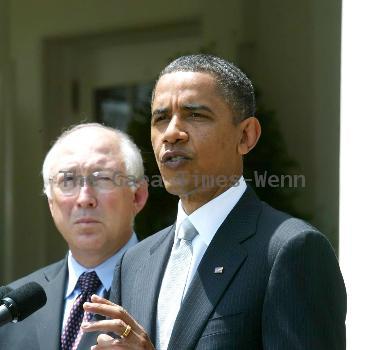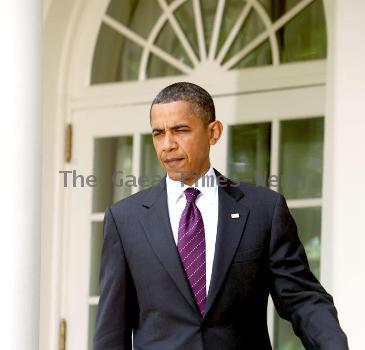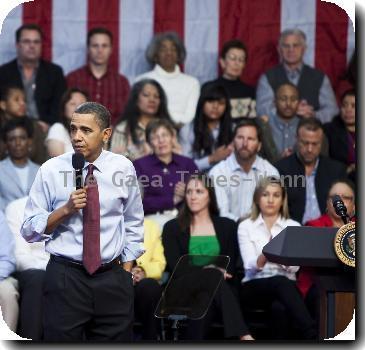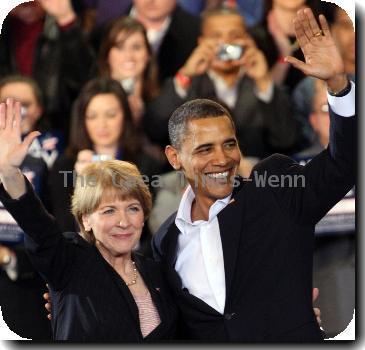Oman in the middle: Rare spotlight on sultan’s land after bail for American jailed in Iran
By Adam Schreck, APWednesday, September 15, 2010
Oman in rare spotlight after bail deal with Iran
MUSCAT, Oman — Oman’s royal leaders have long preferred the understated approach: No high-rises like their Gulf neighbors and policies that quietly balance close ties with both Washington and Tehran.
Now their role as the middlemen — and maybe even the money men — to free American Sarah Shourd from Iranian custody has drawn rare attention to the sultanate and its role as low-key diplomat.
Omani officials have offered few details since spiriting Shourd from Tehran to a royal airfield aboard a private jet.
The 32-year-old American was scheduled for a medical exam Wednesday, her first full day of freedom in more than 13 months, but has given no indication of her plans beyond Muscat — a jumble of low-rise seaside buildings and elegant minarets. Her mother says her daughter has serious medical problems, including a breast lump and precancerous cervical cells.
There has been little official explanation about Oman’s role in Shourd’s release, except for a Foreign Ministry statement thanking Iran and expressing hope for future steps aimed at repairing relations between Washington and Tehran. President Barack Obama and U.S. Secretary of State Hillary Rodham Clinton both thanked Oman for its assistance.
“The Americans discovered the Omanis can be a good go-between, especially when there’s a human dimension,” said Mustafa Alani of the Dubai-based Gulf Research Center. “Tehran always opens its door to the Omanis.”
To help secure Shourd’s release, Oman played intermediary for a half-million-dollar bail that satisfied Iranian authorities and apparently did not violate U.S. economic sanctions. The source of the bail payment has not been disclosed.
Shourd’s attorney, Masoud Shafiei, told The Associated Press in Tehran that a “foreign individual paid the bail in Muscat” and insisted it was “neither a government nor an embassy,” though he did not know the identity of the benefactor.
Oman has a long history of cooperation with Iran.
Its ruler, Sultan Qaboos bin Said, was the first foreign leader to visit Iranian President Mahmoud Ahmadinejad after last year’s disputed election. Together the two countries manage the narrow Straits of Hormuz through which 40 percent of the world’s oil passes.
Yet Oman boasts decades-old ties to Washington as well.
The United States considers Oman an ally in the region — though one without the overt American military presence seen in other Gulf states, such as Bahrain and Qatar. The relationship is so strong that in 2008, then-Vice President Dick Cheney went fishing in the waters off the country’s coast, borrowing the sultan’s 60-foot royal yacht.
Pentagon officials rarely discuss the extent of U.S. military links to Oman and the Gulf country’s leaders are just as mum. But Oman has in the past allowed American forces to use air bases for refueling, logistics and storage.
In 2002, Cheney toured U.S. installations at Oman’s Masirah Island Air Base, which hosted U.S. B-1B bombers, C-130 transports and U.S. Special Forces AC-130 gunships for the military push into Afghanistan after the Sept. 11 attacks, according to media and research reports.
In addition, the U.S. at one time had rights to four Oman air bases including Masirah, which was the staging base for the failed U.S. attempt to rescue American hostages seized in 1979 in the U.S. Embassy in Tehran, according to a Congressional Research Services report. It’s not clear whether that deal remains in effect.
Oman is also a reliable market for the U.S. defense industry, including past sales of F-16 fighters.
“The U.S.-Omani relationship is a solid partnership, but one that is low-profile,” said Suzanne Maloney, a Middle East specialist at the Brookings Institution.
Oman, which has remained neutral on many tense issues in the Middle East and has better relations with Iran than most other Gulf Arab countries, could see a new expanded role as a mediator, said Stephen McInerney of the Project on Middle East Democracy.
Oman’s role in securing Shourd’s release “could be a message … that the U.S. sees Muscat playing an expanded role in dealings with Iran, which are a priority for the U.S. and the Obama administration,” said McInerney. “And it is conceivable that the U.S. can call on Oman for further communications or interactions with Iran.”
Serious challenges remain, however. Shourd’s American companions — her fiance Shane Bauer and their friend Josh Fattal — remain in Tehran’s Evin Prison under indictment on espionage-related charges and could soon face trial. The three were detained along Iran’s border with Iraq in July 2009 and later accused of spying. Convictions could bring sentences of up to 10 years in prison.
Their families say the Americans were innocent hikers in the scenic mountains of Iraq’s Kurdish region and if they did stray across the border into Iran, they did so unwittingly.
Tehran’s chief prosecutor, Abbas Jafari Dowlatabadi, was quoted by the official news agency IRNA as saying trials would begin soon for all three. He added that Shourd’s bail “will be confiscated” if she does not return for trial and in that case she would likely face charges in absentia.
The mothers of Bauer and Fattal told the AP on Wednesday they hope their sons will be released soon.
Laura Fattal noted that Ahmadinejad is coming to New York for the U.N. General Assembly next week. “We would very much like President Ahmadinejad to bring Josh and Shane with him,” she said. “He has innocent hikers, and I think it would be a wonderful humanitarian move.”
Cindy Hickey said her biggest fear with Shourd’s release was “how difficult it would be for Shane and Josh to part from Sarah. But it did sound like Sarah did get to say goodbye to them, so that made me feel a lot better.”
Associated Press writers Brian Murphy in Dubai, United Arab Emirates, Gretchen Ehlke in Milwaukee, Matthew Lee in Washington, Karen Matthews in New York, Amy Forliti in Minneapolis and Hadeel al-Shalchi in Cairo contributed to this report.
Tags: Barack Obama, Embassies, Iran, Middle East, Muscat, North America, Oman, Sarah shourd, Tehran, United States



